Agile and Flexible Solutions To Sustainable Mobility
- By Sharad Matade
- October 13, 2021
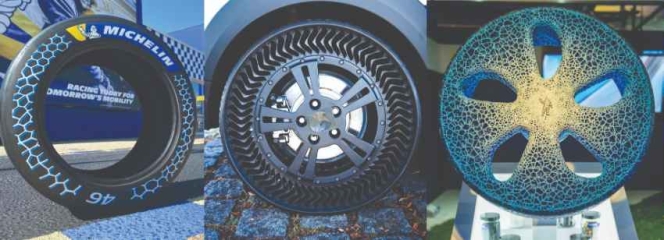
 Michelin India Technology Centre has been operating for over five years. Could you highlight how the centre has been playing its role in research and development for Michelin's domestic and international markets?
Michelin India Technology Centre has been operating for over five years. Could you highlight how the centre has been playing its role in research and development for Michelin's domestic and international markets?
The centre has grown over the years in terms of developing competencies and delivering products and solutions to businesses in the local market, region and globally. The agility and flexibility in delivery of solutions to sustainable mobility is one of our key strengths. The product solutions that are developed in conjunction with other regional teams have the cutting edge, keeping Michelin ahead of the curve. The gender and domain diverse team at the centre has brought unique dimensions to meet customer aspirations specific to different vehicle platforms. There are forward looking concepts and products that are being developed in different life cycle stages by the team in India that have upgraded their skills due to their world class training. Our teams are also exposed to global norms and developments in mature markets, thus enabling them to bring in such perspectives while developing products in the domestic market.
What will drive the Indian truck and bus tyre market in future?
This is very interesting and all of us have seen a reset of a new normal due to Covid-19 in ways we are conducting the different facets of our businesses. The Indian market is smart, agile and ahead in their thought process compared to some of the other markets. The digital solutions, smarts, AI and services will drive the Indian truck and bus tyre market. Customers, whether they own transportation fleets or personal vehicles, want the worry-free ‘fit and forget’ tyre solutions. At Michelin, we have many such services, charging cost per kilometre to customers, which have been deployed in mature markets as well as in India, allowing our customers to focus on other aspects of their business models or personal routines.
The other driving factor will be ‘smarts’ in the tyre industry. The embedded chips in tyres for V2X interfaces are a huge opportunity for the mobility ecosystem with a vast application playfield that includes monitoring tear wear, tyre rotation periods, driver behaviour, inputs fed to active integrated suspensions for ride comfort, adjusting speed depending on terrain for safety and ergonomics of driver comfort as well as cargo movement.
Advanced materials will change the game with growing percentages of recycled rubber in tyre design and manufacturing. These will be an enabler in reducing carbon footprint of a vehicle and the holistic ecosystem including tyre dust. Faster curing materials, self-sealing tyres are around the corner in India. There are pilots and that will be the real ‘aah-ha’ moment for the industry and consumers.
The centre also has a material testing lab. Sustainable raw materials are growing focus of tyre companies. What are the activities of the centre in the material testing space?
Materials, we believe, will be the strategic edge of our products and solutions as mentioned earlier. The centre does leverage material testing, monitoring various aspects of product development. The automation of test data for faster evaluation and upstream design actions is an important aspect with regard to speed to market. This is something that our teams are good at creatively innovating at the centre and the lab downstream.

How do you distinguish the product requirements for developed and developing countries?
It is not the product but the solutions and services that are adapted for different regions. This is decided based on local regulations and norms, and the ecosystem and the infrastructure available there to support it. Product development also considers the tech savviness in the totem poles of the customers. The smartness in deploying the right solutions at the right price, at the right time will continue to be a distinguishing and winning factor for us across the globe.
MITC joined hands with IIT Bombay and ARAI. According to you, how will the new mobility shape in India, and how are you preparing, through R&D work, to offer the customised products in India?
This is one amazing aspect of India that we believe can be leveraged to the advantage of the Indian ecosystem. The Indian competitiveness for delivering ‘more customer value with lesser resources’ will help Michelin progress with these engagements. We will have students exposed to mature markets, working with global academia and experienced Michelin engineers to straight-on take the lead in their careers and solution mindset. We are confident that these and such partnerships are the diving boards to our collective growth. To use the cricket analogies, we are here to play well, in both the T20 and the test matches, and we are building teams that can switch on and off the pace between such situations due to their exposure, mentoring and talent acceleration.
 Will you be open to more partnerships in India?
Will you be open to more partnerships in India?
The power of Collective Intelligence is second to none when it comes to delivering smarts to our customers through such valuable partnerships. The centre is already working with few of the academic institutions in India and is in discussions with the right-minded players that are on the same page. We have a clear understanding of ‘where to play’ as it forms our evaluation matrix when we are exploring start-ups, incubation parks and innovation accelerators. We will continue this journey as it helps with the step-change in the Indian ecosystem on many aspects of mobility and related solutions that are beneficial to all stakeholders.
According to you, what are the more significant challenges for scientists and engineers in the tyre industry?
Challenges are to find, train and retain individuals with the right kind of skill-sets. The gestation period to train and get an engineer to deliver high quality smart solutions requires patience and commitment. The more experienced scientists and engineers are at cross roads to delegate to the pipeline of talent that graduates out of our engineering institutions in their early professional journey. The infra and technical power needs to grow in India since the AI solutions and digitalisation can be catapulted very well in an existing innovation mindset for deployment. The race to get to the senior positions without developing a depth in domains is a challenge and not sustainable for growth in the long term. Talent in AI and data analytics tied to tyre and mobility domains is growing, but this talent is enticed by other non-mobility industries, creating a churn and dampening the speed to market and ability to provide attractive solutions and products to our customers. (TT)
- INDIAN TYRE INDUSTRY
- TYRE RETREADING
- BIS STANDARDS
- IS 15704
- ECE R109
- CIRCULAR ECONOMY
- MSME CHALLENGES
- AUTOMOTIVE REGULATION
- CARBON REDUCTION
- FREIGHT
- LOGISTICS
Retreading Hangs In Balance Over Regulatory Conundrum
- By Gaurav Nandi
- December 30, 2025
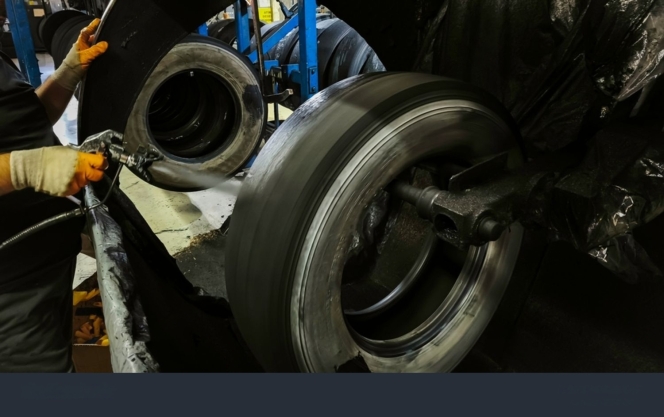
A population of over 1.4 billion people catapulting into the world’s third largest automobile market with four million trucks plying across a road network of 6.3 million kilometres supported by a USD 13.4 billion tyre market and a mining sector contributing around 2–2.5 percent of the country’s GDP demonstrate the strength of India’s automobile, freight and tyre sectors.
The story doesn’t end there as the Central Government adopts a strategic approach on reducing carbon emissions across these verticals, especially automobile and tyres, with targets such as the Net Zero Carbon Emissions by 2070, battery electric vehicles target by 2030, zero-emission truck corridors, Extended Producer Responsibility for the tyre sector; the list just goes on.
Amidst all such statistics and targets, a silent spectator remains the old and varied sector of tyre retreading. In a recent news story reported by Tyre Trends, the Indian Tyre Technical Advisory Committee (ITTAC) had made a proposal to Tyre Retreading Education Association (TREA) for mandating certain standards that will improve the quality of retreads. ITTAC has made recommendations to the BIS committee. TREA is part of the same committee. ITTAC and TREA are recommending different standards.
These standards included BIS retread standards, namely IS 15725, IS 15753, IS 15524 and IS 9168. The ITTAC had partially aligned Indian requirements with ECE R109, the European regulatory benchmark.
In a reply to the proposal, which was accessed by Tyre Trends, TREA urged the Indian Tyre Technical Advisory Committee to seek a deferment or non-applicability of BIS standard IS 15704:2018 for retreaded commercial vehicle tyres, warning that mandatory enforcement could cripple the sector.
In the letter, TREA argued that IS 15704:2018 is largely modelled on new tyre manufacturing norms and is technically unsuitable for retreading, which is a restoration and recycling process.
The standard mandates advanced laboratory tests such as spectrometer-based rubber analysis, endurance testing and compound uniformity checks, requirements that most retreading units, particularly small and medium enterprises, are not equipped to meet
The association highlighted that even large retreaders lack the infrastructure and skilled manpower needed for BIS-grade testing, while the sheer number of retreading units would make inspections and certifications operationally unmanageable for regulators.
TREA warned that compliance costs linked to machinery upgrades, audits and quality control could force 70–80 percent of units to shut down, leading to job losses, higher fleet operating costs and adverse environmental outcomes due to reduced recycling
Instead, TREA proposed that BIS prioritise retreading-specific standards such as IS 13531 and IS 15524, which focus on materials, process control, safety and quality consistency.
The body has also called for a phased transition roadmap, MSME support and industry training before any stricter norms are enforced, stressing that abrupt implementation would undermine the sector’s role in India’s circular economy.
The conundrum
India has a total of 36 administrative divisions comprising 28 states and 8 union territories. The tyre retreading sector has been continuously supporting circularity goals since the early 1970s across the world’s largest economy without getting mainstream recognition.
Even after five decades in service, the industry battles different bottlenecks including fragmentation, manpower shortage, tax pressures brought about by the recent GST revisions and now the implementation of such standards, just to name a few.
The sole practice that can simultaneously reduce carbon emissions from tyres and extend tyre life is assumed the nemesis of an ‘infamous and dangerous practice’ in some states of the country.
However, the industry has been drawing its techniques and quality parameters from the world’s oldest retreading economy, Europe.
“Big retreaders in India already have the necessary processes in place that conform to IS 15524 standards. However, as the standard is not yet mandated, we have voiced support for it because it is process-oriented and outlines how retreading should be carried out, including buffing and building procedures,” said TREA Chairman Karun Sanghi.
He added, “This standard focuses on how the work is done rather than imposing product-level testing that cannot be practically implemented. The current debate on IS 15704 stems from it being fundamentally incompatible. The standard includes requirements such as sidewall marking and destructive testing of retreaded tyres, which are impractical in a retreading environment where each tyre differs in brand, size, application and usage history,” he added.
Destructive testing, he argued, assumes uniform batch sizes. In retreading, where every casing is unique, testing even a single tyre would mean destroying finished products without yielding representative results. Applying such a framework would effectively require the destruction of every tyre in a batch, making compliance unviable.
“We have submitted our response to ITTAC and are awaiting feedback from the committee. We remain open to continued dialogue and will engage further once the committee responds to our submission,” said Sanghi.
According to him, a typical retreader processes about 300 tyres a month across multiple brands including MRF, JK Tyre, Apollo and Michelin and applications ranging from buses and trucks to mining vehicles. These casings vary widely in load cycles, operating conditions and duty patterns, often across several models from the same manufacturer.
The committee has cited European standard ECE R109, but Sanghi points to structural differences: “Europe is a global retreading hub where tyre manufacturers such as Michelin and Bridgestone dominate operations, collect their own tyres, retread them and return them to fleets, making batch-based destructive testing relevant. A similar model exists in US, where large tyre companies lead retreading and largely self-regulate without a single overarching standard. The Indian scenario is different, especially with a fragmented market.”
He stressed that the industry is not opposed to standards but to those that cannot be practically applied, warning that adopting European manufacturing-oriented norms without accounting for India’s market structure and operating realities would be counter-productive.
The debate is no longer about whether standards are needed but whether they are fit for purpose. Without accounting for India’s fragmented retreading ecosystem, enforcing impractical norms could dismantle a circular industry in the name of compliance.
TGL Season 2 Kicks Off With Hankook As Founding And Official Tire Partner
- By TT News
- December 29, 2025
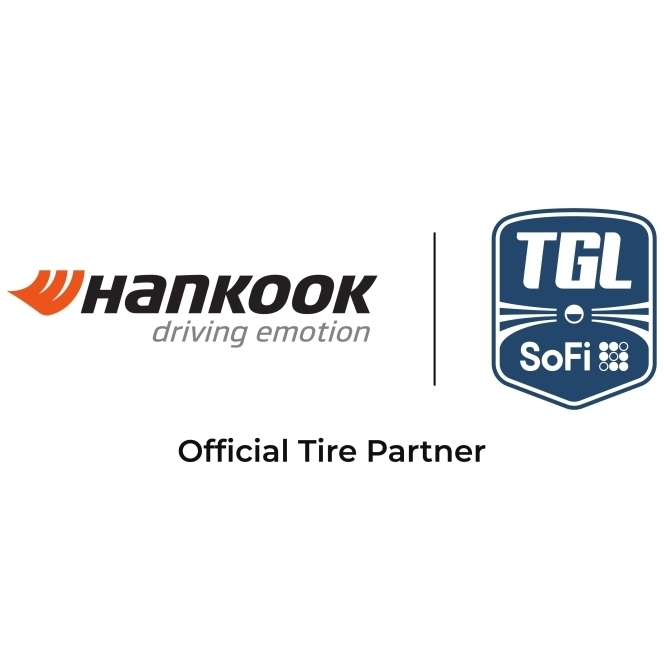
The second season of TGL Presented by SoFi, where Hankook Tire serves as the Founding and Official Tire Partner, commenced on 28 December 2025. This innovative league, a venture of TMRW Sports with backing from icons like Tiger Woods and Rory McIlroy, represents a strategic alignment for Hankook, uniting two entities driven by technological advancement. The partnership provides a global platform to reinforce Hankook's premium brand positioning across North America and worldwide through extensive visibility during broadcasts and at the state-of-the-art SoFi Center in Florida.
This unique venue embodies the league's fusion of sport and technology, featuring a massive simulator with a dedicated ScreenZone and a dynamic GreenZone. This area, equipped with a turntable and over 600 actuators, meticulously replicates real-world golf conditions indoors, creating an immersive arena experience. The competition itself is fast-paced and engaging, with teams of PGA TOUR players competing in Triples and Singles sessions over 15 holes. Innovative elements like the point-doubling ‘Hammer’, real-time strategy via ‘Hot Mic’ and a Shot Clock ensure a dynamic spectacle for fans.
The season opener presented a compelling narrative as a rematch of the inaugural finals, pitting the undefeated Atlanta Drive GC, featuring Justin Thomas and Patrick Cantlay, against a determined New York Golf Club squad led by Matt Fitzpatrick and Xander Schauffele. This match set the tone for an intensive season running through March, where six teams and 24 top golfers will compete. For Hankook, this partnership is more than signage; it is an active engagement with a global community, delivering a distinctive brand experience that bridges cutting-edge mobility and sport for enthusiasts everywhere.
Dunlop Secures CDP ‘A List’ Recognition For Climate Change And Water Security
- By TT News
- December 29, 2025
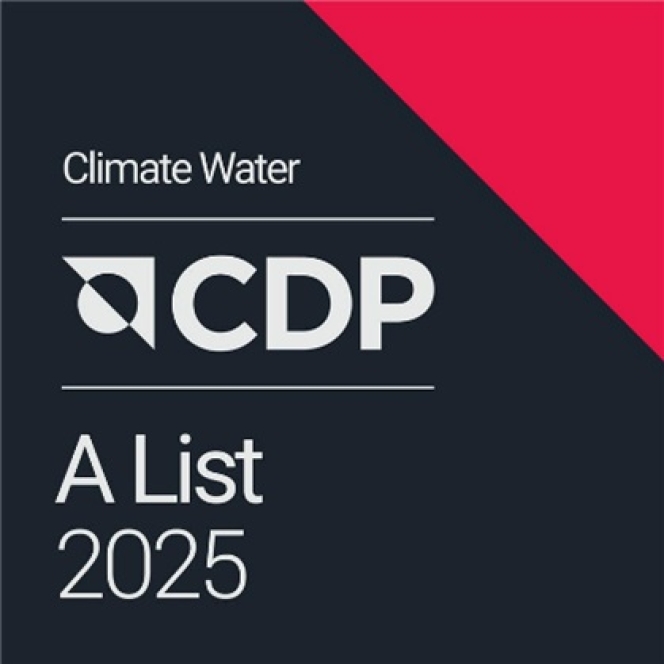
Dunlop (company name: Sumitomo Rubber Industries, Ltd.) has made its way to the annual A-List of CDP for climate change and water security. This premier designation, awarded for the first time to the company in the 2025 evaluation, recognises world-leading performance in transparency, risk management and environmental action. CDP’s annual assessment is a key benchmark for corporate sustainability across climate, water and forests.
This achievement stems from the Group’s integrated approach to material issues outlined in its corporate philosophy. It treats the interconnected challenges of climate change, biodiversity and the circular economy holistically, advancing concrete initiatives under its long-term ‘Driving Our Future’ sustainability policy.
On climate, the Group’s science-based emission reduction targets for 2030 are validated by the Science Based Targets initiative. Operational efforts include pioneering green hydrogen production at its Shirakawa Factory and developing tyres made entirely from sustainable materials by 2050. The company also works to reduce emissions across its supply chain, lowers tyre rolling resistance to improve vehicle fuel economy and extends product life through retreading.
For water security, the strategy is driven by localised risk assessments at global production sites. In seven facilities identified as high-risk, the goal is to achieve 100 percent wastewater recycling by 2050. Progress is already evident, with the company’s Thailand factory reaching full wastewater recycling in 2024.
These coordinated actions on multiple environmental fronts formed the basis for the Group’s simultaneous top-tier recognition in both critical categories from CDP.
Bridgestone Launches Co-Creation Initiative With Ethiopian Airlines Group
- By TT News
- December 29, 2025
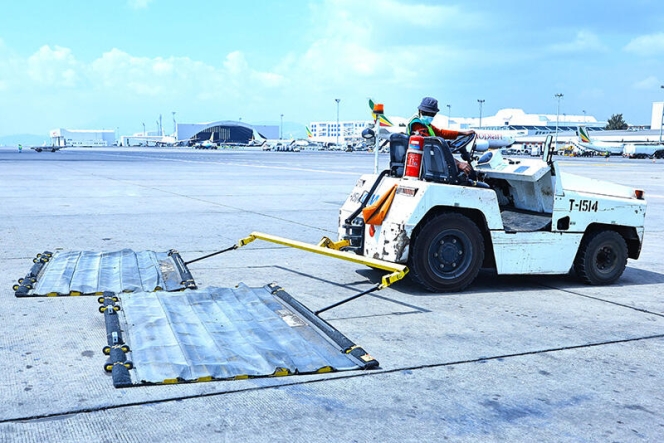
Bridgestone Corporation has initiated a novel co-creation programme in partnership with Ethiopian Airlines and Ethiopian Airports, focused on enhancing aviation safety at Addis Ababa Bole International Airport. This marks Bridgestone’s first sustained three-way collaboration with both an airline and an airport authority, targeting the reduction of Foreign Object Debris on runways and taxiways to support safer and more reliable aircraft operations.
The project was prompted by tyre-related incidents linked to debris at the airport, which previously risked disrupting flight schedules. Leveraging its specialised system for inspecting used airline tyres and analysing debris data, Bridgestone assessed conditions at the hub and proposed a tailored action plan. The company provided continuous support by analysing debris distribution patterns, developing visual hazard maps, advising on efficient collection methods and conducting training to raise awareness among airport personnel.
These sustained efforts have yielded significant results, substantially lowering the rate of tyre damage caused by runway debris compared to levels before the collaboration began. This reduction has supported improved on-time performance for Ethiopian Airlines while advancing overall operational safety. Additionally, the initiative has encouraged greater use of retreaded tyres, promoting economic efficiency and environmental sustainability within the airline’s operations.
Looking ahead, Bridgestone and Ethiopian Airlines Group plan to deepen their co-creation efforts, aiming to generate further value for the aviation sector and broader society through continued innovation and partnership.
Retta Melaku, Chief Operating Officer, Ethiopian Airlines, said, "At Ethiopian Airlines, the safety of our passengers, employees and aircraft is a priority. We are pleased to collaborate with Bridgestone to further strengthen our efforts in reducing FOD at Addis Ababa Bole International Airport and ensure safe operations at the hub airport."
Getaneh Adera, Managing Director, Ethiopian Airports, said, "We remain fully committed to upholding the highest safety standards at Bole International Airport at all times. This significant achievement in reducing FOD is the result of our strong commitment for safe operations and close collaboration with Bridgestone. Through our co-creation activities, we are pleased to have realised safer operations with enhanced productivity and economic value."
Jean-Philippe Minet, Managing Director, Bridgestone Aircraft Tire (Europe) S.A., said, "By combining the learnings and insights from Ethiopian Airlines' operational issues with our analysis technology and know-how, we have deepened our co-creation to propose customised solutions. We are delighted to contribute to safe aircraft operations with peace of mind and to improved operational productivity through the co-creation of efficient FOD reduction on airport surfaces. Through further expansion and evolution of this solution, we will amplify the value of our ‘Dan-Totsu Products’, trust with our customers and value of the data for creating new value."







Comments (0)
ADD COMMENT